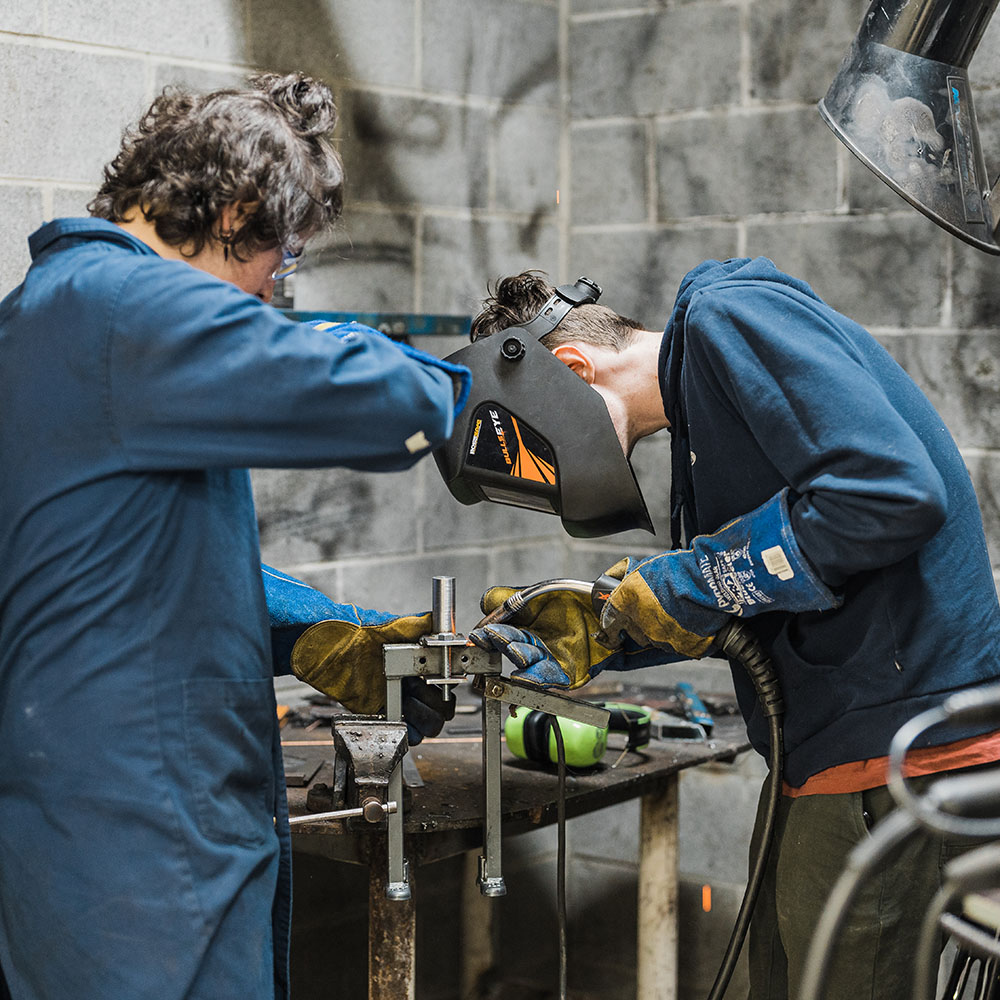You can’t just walk into a hospital and start work as a doctor or a nurse, can you? You’d need to have the right qualifications. Qualifications show employers that you have successfully completed training in a chosen field. In fact, most jobs will need some sort of minimum or desired training or qualification.
Knowing about qualifications can help you decide the best learning pathway to take. It also helps you to figure out how you can progress to higher qualifications too. Remember that everyone’s journey is different, and there’s really no right or wrong pathway (and just go for it!).
Some companies deliver pizzas – other organisations deliver qualifications. We want to concentrate on the latter. There are two types of organisations that deliver qualifications.
1. Registered Training Organisations (RTO)
2. Further Education Institutions

What’s an RTO?
Good question. RTO is the acronym for Registered Training Organisation. They deliver vocational education and training (VET) focused on practical skills and knowledge. Not only do they provide nationally recognised training, but they also assess it too.
There are approximately 5000 RTOs in Australia. They’re registered by the Australian Skills Quality Authority. They ensure every RTO meets a national standard when delivering and assessing training. Tasmania has a few RTOs that provide accredited training. This includes TasTAFE, the public provider, and several private RTOs.
RTOs may offer students a range of different qualification levels:
- Short courses
- Certificates I, II, III and IV
- Diploma
- Advanced Diploma
Further Education Institutions
The University of Tasmania offers higher education qualification levels such as:
- Diplomas/Graduate Diplomas
- Bachelor degrees
- Associate degrees
And just to make it confusing, some parts of the university are RTO’s too.
TasTAFE offers higher education qualification levels such as
- Diplomas
- Advanced diplomas

Types of qualifications
There are vocational and academic qualifications. Your learning pathway might include a combination of both.
There’s a national system in place for qualifications. It’s called the Australian Qualifications Framework (AQF). It makes sure that all students receive equal recognition for their achievements. This is across further education, vocational education and training (VET), and schools.
The AQF has ten levels. It starts at level 1 for a Certificate I and progresses in skill and complexity to level 10 for a Doctoral Degree.
Short courses
Duration: 1 day – multiple days.
About: Usually short courses are designed to build a specific skill relevant to work needs. Courses may be delivered online, face to face or a mix of the two.
Occupations: Dental radiography, AutoCAD, Park Inspection course
Delivered by: TasTAFE, private RTOs
Undergraduate Certificates
Duration: 6 months – 1 year.
About: You’ll gain foundational knowledge and skills. If you want to upskill, learn more about employment or love lifelong learning, these courses are for you. Delivered online and face to face.
Occupations: e.g. Environmental Management, ICT Support, Test Engineers, Health or Community Sectors. Climate Scientist, Teachers Aide, Social Worker, Dementia Care, Cyber Security, Data Analyst.
Delivered by: University
Certificate I (AQF level 1)
Duration: 6 months – 2 years
About: It provides you with basic knowledge and skills. Good for going into further education and training.
Occupations: e.g. Labourer, Sales Assistant, Support Assistants, Plant Nursery Assistant
Delivered by: TAFEs, RTOs, Schools and Senior Secondary Colleges
Certificate II (AQF level 2)
Duration: 6 months – 1 year
About: It’ll provide you with theoretical and practical knowledge and problem-solving abilities. It’s great for getting into entry-level work or further education.
Occupation: e.g. Barista, Hair and Beauty Salon Assistant
Delivered by: TAFEs, RTOs, Schools and Senior Secondary Colleges
Certificate III (AQF level 3)
Duration: 2 year – 4years
About: It will give you theoretical and practical knowledge and problem-solving abilities. Good for going into skilled work or further education and training. Most ‘trades’ are certificate III and require you to get an apprenticeship with an employer to complete them. Visit the Australian Apprenticeship website.
Occupation: e.g. Carpenter, Dental Assistant, Diesel Mechanic
Delivered by: TAFEs, RTOs, Schools and Senior Secondary Colleges
Certificate IV (AQF level 4)
Duration: 6 months – 2 years
About: This will provide specialised technical knowledge and skills. Good for skilled work or go into further education and training.
Occupation: e.g. Architectural Draftsperson, Interior Decorator, Marine Crew – Master
Delivered by: TAFEs, RTOs, Schools and Senior Secondary Colleges
Diploma/Advanced Diploma (AQF levels 5 and 6)
Duration: 6 months – 2 years
About: Diplomas provide a deeper knowledge in a particular field. Advanced Diplomas provides specialised technical and theoretical knowledge and in-depth skills. Perfect for those looking at advanced skilled work or further education and training.
Occupation: e.g. Enrolled Nurse, Network Support Technician, Creative Arts, Therapy Worker, Project Manager
Delivered by: TAFEs, RTOs, University Colleges, Universities
Associate Degree (AQF level 6)
Duration: 2 years
About: This will provide specialised technical knowledge and skills. Great for skilled jobs or to go into further education and training.
Occupation: e.g. Content Writer, Customer Service Manager, Sports Administrator
Delivered by: University, University College
Bachelor Degree (AQF level 7)
Duration: 3-5 years
About: Provides a higher level qualification to enter a field of work of occupation. It will provide a broad and coherent range of knowledge, or specialist skills. Some occupations, such as medicine or law require this qualification to become registered or licensed to practice.
Occupation: e.g. Engineer, Lawyer, Teacher, Registered Nurse
Delivered by: University

Find out more
There are Post-graduate qualifications that can be undertaken after a Bachelor’s degree. For more information about qualifications visit the Australian Qualifications Framework website.

